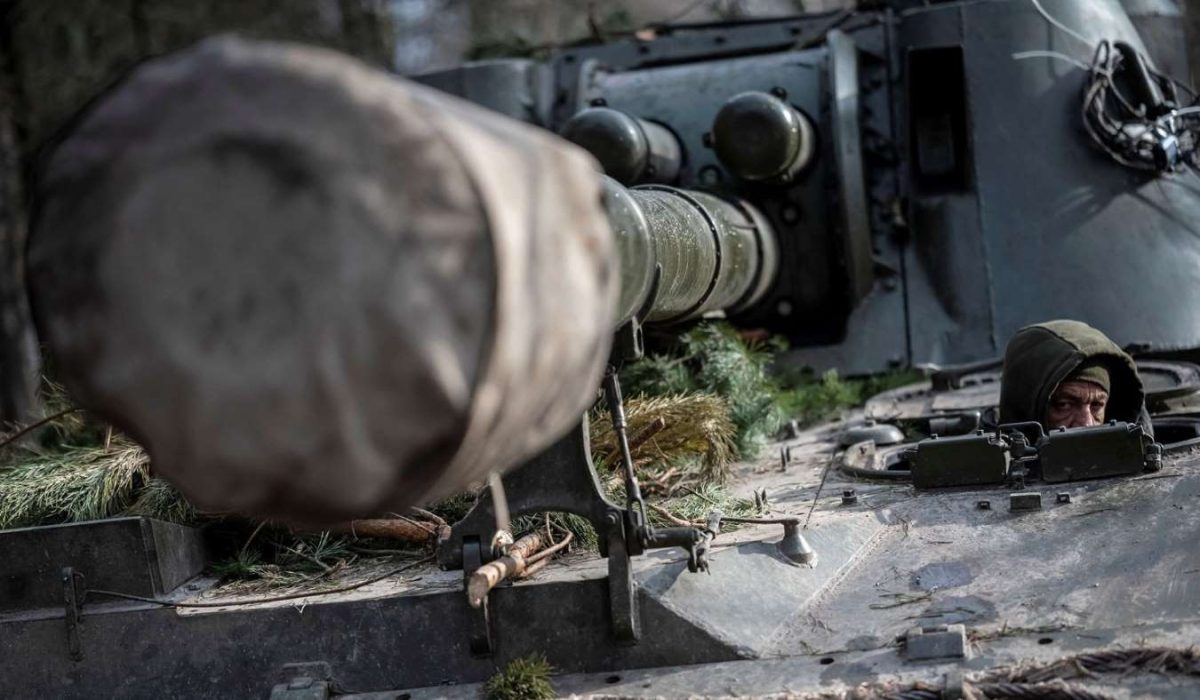Russia suffers highest casualties since first week of invasion: UK intelligence
The latest defence intelligence update from the UK Ministry of Defence says that over the past two weeks, Russia has likely suffered its highest rate of casualties since the first week of the invasion of Ukraine.
The update, posted to Twitter, continues: “The Ukrainian General Staff release daily statistics on Russian casualties. Although Defence Intelligence cannot verify Ukraine’s methodology, the trends the data illustrate are likely accurate.”
“The mean average for the last seven days was 824 casualties per day, over four times the rate reported over June-July 2022. Ukraine also continues to suffer a high attrition rate,” it added.
“The uptick in Russian casualties is likely due to a range of factors including lack of trained personnel, coordination, and resources across the front – this is exemplified in Vuhledar and Bakhmut,” it noted.
Air defense assistance to Kyiv discussed between Ukrainian, US officials
The US Defence Secretary Lloyd Austin and Ukrainian Defence Minister Oleksii Reznikov have discussed “priorities”, including air defence and artillery, for upcoming meetings of Kyiv’s allies in Brussels, both sides announced.
After securing a promise of scores of modern battle tanks, including the US M1 Abrams, German Leopard 2 and British Challenger 2, Ukrainian President Volodymyr Zelenskiy and other Kyiv officials have been urging allies to send fighter aircraft.
The Ukraine Defense Contact Group will meet on Tuesday at the NATO headquarters, following up on a 20 January conference at the Ramstein Air Base in Germany that was key for the decisions to send tanks.
Austin and Reznikov discussed the importance of delivering promised capabilities as quickly as possible, the Pentagon’s chief spokesperson, brigadier general Patrick Ryder, said in a statement.
After the call, Reznikov tweeted that “the United States is unwavering in its support of Ukraine,” adding that the two also discussed the situation on the front line.
Ukraine holds defense, regains positions in ‘some areas’
Ukrainian troops recaptured previously lost positions and gained a foothold “in some areas” along the front line, Commander-in-Chief of Ukraine’s Armed Forces Valerii Zaluzhnyi said.
Zaluzhnyi added that Ukraine’s defense is holding, keeping Bakhmut, a city in Donetsk Oblast, under control, and taking measures to stabilize the front line around this city.
The fiercest battles are currently raging in the area of Vuhledar, and Mariinka, towns that sit about 150 kilometers southwest of Bakhmut, where Russia carries out up to 50 attacks per day, he stated.
Russia putting the Zaporizhzhia nuclear plant at risk of a disaster: Ukrainian official
Russia is draining water from Kakhovka reservoir on temporarily occupied territories
This puts in danger the cooling system at the Zaporizhzhia Nuclear Power Plant, irrigation for nearly half-a-million acres of farmland and drinking water for many peoplehttps://t.co/5BATcGAxPc pic.twitter.com/y0mLNBLENU
— Anton Gerashchenko (@Gerashchenko_en) February 11, 2023
Thousands of volunteers from West and elsewhere want to fight for Russia: Official
Several thousand volunteers from the West and elsewhere are queueing up to fight for Moscow, a Russian official has claimed.
Vladimir Rogov, a member of the Administration Council of the Zaporizhzhia region, said they are motivated by a desire to fight “Nazism” and would be deployed on the battlefield and in intelligence.
“These are not only [people from] former Soviet republics, but there are citizens of the developed world – the United States, Great Britain, Canada, France, Germany, Middle Eastern and Latin American countries, including Brazil and Argentina,” Rogov, the leader of the movement We Are Together With Russia, told TASS on Saturday.
“Their motivation is quite strong, they would like to preserve traditional society and help Russia, they want to battle Nazism,” he added.
Wagner head: Russia could take two years to capture east Ukraine regions
Yevgeny Prigozhin, the head of the Wagner mercenary group, has said it could take two years for Russia to fully control the Donetsk and Luhansk regions in eastern Ukraine, two regions whose capture Moscow has stated as a key goal of the war.
In a video published with the Russian military blogger Semyon Pegov, reported by Reuters, Prigozhin stated, “As far as I understand, we need to close off the Donetsk and Luhansk republics and in principle that will suit everyone for now.”
“That could take one and a half to two years,” he continued.
In September, President Vladimir Putin formally annexed the Luhansk and Donetsk regions in Ukraine, along with Kherson and Zaporizhzhia, in defiance of international law and condemned by UN member states as illegal.
“If we have to get to the Dnipro, then it will take about three years,” Prigozhin noted, referring to a larger area that would extend to the vast Dnipro River that runs roughly north to south, bisecting Ukraine.
Prigozhin does not speak for the Russian military but his comments provide a rare insight into Russian expectations of the conflict, from the head of a group at the centre of some of its fiercest fighting.
